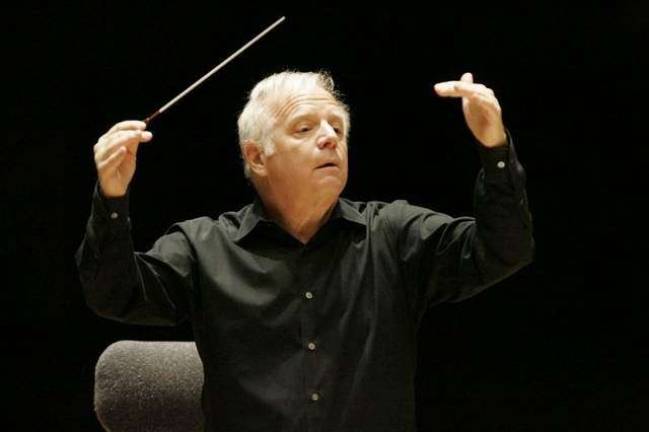The Detroit Way

A revived orchestra comes to Carnegie Hall with its maestro, Leonard Slatkin
From May 6 to May 11, Carnegie Hall will present a festival called "Spring for Music." It offers five orchestras in six concerts. The orchestras come from around the country, and one of them was to have been the Oregon Symphony. The Oregonians found themselves short on cash, however, and the Detroit Symphony Orchestra (DSO) will play two concerts (May 9 and 10).
The first DSO concert consists of Sergei Rachmaninoff, Kurt Weill and Maurice Ravel. The second one is devoted to Charles Ives-his four symphonies. The concerts are conducted by the DSO's music director, Leonard Slatkin.
I say to him, in a phone conversation, "I'm glad to be hearing Ives. But it's a shame not to hear Walter Piston-he's never played." Slatkin informs me that he himself conducts Piston. But it's true: The mid-century Americans are largely ignored. Music follows fashion, and Piston, William Schuman, Peter Mennin and the rest of those guys are out of fashion. A young conductor, says Slatkin, should make a project out of reviving them.
A young woman named Caroline Shaw has just won the Pulitzer Prize, notes Slatkin. She does not call herself a composer, interestingly enough. But performers will naturally want to perform what music she has written, or will write. What they're unlikely to do, says Slatkin, is unearth, say, the Seventh Symphony of Roy Harris. (That composer's Third was once well-known, but has faded from the repertoire.)
Slatkin grew up in Los Angeles, the son of a famous musician: Felix Slatkin, the violinist, conductor, arranger and so on. In and out of the house trooped even more famous musicians: Arnold Schoenberg and Igor Stravinsky, yes, but also Art Tatum, the jazz pianist, and Frank Sinatra. Felix Slatkin died in 1963, when he was only 47. Leonard was 19.
He is now doing what his father wanted to do but did not live quite long enough to do: head an orchestra. His father wanted an orchestra of his own to conduct, somewhere. He was on the verge of getting one when he died. Leonard Slatkin has held many music directorships in his career. He started in Detroit five years ago.
The DSO has come through a rocky period. Before there was a national recession, there was a "one-state recession": Michigan's. The DSO was not immune. Then, toward the end of 2010, the musicians went on strike, for six months. The orchestra is now back on its feet, reformed and flexible.
The musicians took a pay cut-22 percent, on average. But they can earn more with optional work. The orchestra's main home is still Orchestra Hall, downtown. But they are also out in the suburbs, in six different venues. Occasionally, the musicians break out into smaller ensembles, such as string quartets. "We don't do flash mobs yet," says Slatkin, "but that may come."
Ticket prices have fallen, and ticket sales have increased. Also, concerts are streamed live on the Internet. "We are redefining the word 'audience,'" says Slatkin. The webcasts are free of charge. Doesn't this keep people from going to the concert hall? On the contrary, says Slatkin: The webcasts whet their appetite for the live-and-in-person experience.
The DSO is even developing an audience abroad, says Slatkin. "So, when the time comes to resume international touring, we have a head start. People not only know how we play, they know what we look like."
You can buy all nine Beethoven symphonies from the DSO for a mere 20 bucks: They are downloadable. Slatkin figures we will have compact discs for another three or four years and then yield entirely to new technologies.
The DSO also has a number of programs designed to provide music education to young Detroiters-this used to be the job of families and schools. Slatkin himself enjoyed an excellent music education in the public schools he attended. He may have come from a spectacularly musical home, but "I cherished that hour when the music teacher came in with an autoharp." Our society has changed, though, as we all know.
In short, the DSO has found a way to keep itself afloat, and moving forward. They are coping with the challenges of today, and also taking advantage of opportunities-such as the Internet. Slatkin is a particularly good ambassador for music. He is not only a fine conductor, he is one of the best talkers about music you'll ever hear. He has some things in common with a conductor he much admired, Leonard Bernstein. And after all these years, he still loves music as much as ever.
"I have the best job in the world," he says. "It is an honor and a privilege, as well as a responsibility." He continues, "I stand in front of a hundred musicians and give a downbeat. To this day, I'm not 100 percent sure why that sound comes out"-the hard-to-beat sound of an orchestra.